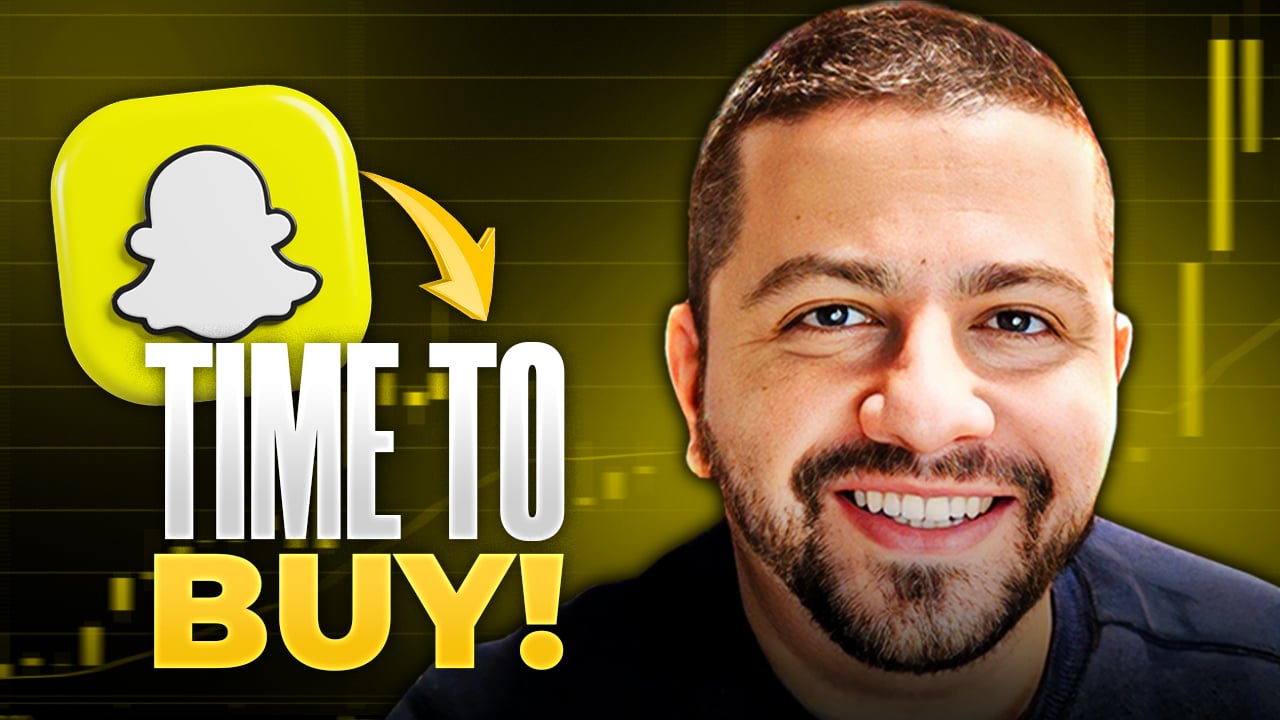Check out the latest Snap earnings call transcript.
Snap (SNAP 2.26%) CFO Tim Stone, who the company had poached from Amazon just eight months ago, is leaving. The news comes just a couple months after the Snapchat also lost its head of investor relations, which is a rough combination for investors to cope with. The company continues to suffer from a relentless executive exodus.
In this segment from Industry Focus: Tech, host Dylan Lewis and Fool.com contributor Evan Niu discuss Snap's revolving door.
A full transcript follows the video.
This video was recorded on Jan. 18, 2019.
Dylan Lewis: All right, Evan. Switching gears and talking about another big story in tech. We got news earlier this week that Snap's CFO, Tim Stone, was going to be leaving the company. This is one of most dominant headlines that our readers and listeners probably saw this week.
Evan Niu: It's pretty big news. They only poached Tim Stone away from Amazon back in May. It's only been eight months. And they got him with a $20 million pay package. [laughs] He's giving up quite a bit by leaving so soon. That compensation package included $19 million in standard equity units that vest over time, as well as a $1 million grant that invested within six months. As of last Form 4 filing, he still had like 2.3 million shares. But there's a lot that he's leaving on the table. And it's never good news when you're losing two CFOs in under a year.
Lewis: He was there to replace Drew Vollero, who left the company. As a reminder for some folks who may not be as familiar with Tim Stone, his pedigree, he spent 20 years at Amazon before coming to Snap. Certainly not a guy that needed money, but to see him leave $18 million -- or, I've seen some estimates at $16 million -- he left a lot of money on the table, one way or the other, to leave. That says to me that he was not happy with the situation at this company.
Niu: Right, exactly. We were talking about this earlier, there's a Bloomberg report, Stone apparently was interested in being really ambitious and wanted a promotion. He wanted an even higher pay package, and he also wanted to be promoted to COO. Then he went behind Evan Spiegel's back to talk to the board, which, of course, Spiegel is part of. [laughs] And, apparently, that caused a lot of tension between the two.
Lewis: And that COO role was vacant because Imran Khan, who was the chief strategy officer at the company, and was there for several years, left last year to pursue his own opportunities. He's working on some e-commerce start-up. So, he'd left for some other opportunities. Stone, it wasn't clear that he was leaving for any reason aside from not necessarily getting along, or not necessarily having the same vision as Evan Spiegel.
Niu: Spiegel's management has been called into question a lot lately. There are reports that the previous CFO, Drew Vollero, left in part because Spiegel was so obsessed with making Spectacles. We've talked about Spectacles at length on this show, how they seem to be more trouble than they're worth, no one buys them, no one uses them, but Snap keeps putting all this money into developing and marketing and distributing these things. And apparently, Spiegel was just so obsessed with this, and Vollero was really against this wasteful spending on hardware development. Obviously, we don't know the exact circumstances around Stone's departure now, but the point being, I don't think Evan Spiegel is a great leader. [laughs]
Lewis: Yeah, I think a lot of people thought Stone was going to be the adult in the room, so to speak, the guy that at least got them on the up-and-up with their books, maybe got them focused on the right priorities and investing in the right places. For him to be leaving, I think, does say quite a bit about Spiegel.
It's also concerning because, you look at their management team over the last two years, it's been a mass exodus. [laughs] You know? You look at their current executives and directors page on the company website, only Bobby Murphy and Evan Spiegel, the two co-founders, have been in their current positions prior to July 2017, and the company went public in March of that year. That really doesn't speak to a management team that people want to be a part of and are ready to work for long-term.
Niu: Yeah, exactly. There's also news this week that broke that apparently, their head of IR had left back in November, but it wasn't reported until just now. Specifically, if you're an investor, the two positions that are pretty important to you are the CFO and the head of investor relations. With no head of IR, and the CFO on his way out, that's a pretty terrible combination for investors in terms of corporate governance, investor transparency, and all these things.
Speaking of investor transparency, Stone, to his credit, was the one that implemented financial guidance. Snap previously never provided any financial guidance, which left investors in the dark about what's going on, what to expect the next quarter, on top of not having any votes or any way to actually influence the company. These are just a lot of really negative developments back to back.
Lewis: If there's a silver lining looking at the Stone news, I think, in digging into what his comp package was, we can say that Snap as a company has gotten better at setting up their share vesting schedules. One of the big criticisms that we had of this company was, when they IPO-ed, Evan Spiegel immediately received, what, a $650 million share grant?
Niu: Roughly, yeah. As a bonus for taking the company public. He'd sold like $200 million or $300 million of the stock in the IPO, and then they just gave him another $600 million or $700 million just for taking the company public. [laughs] Certainly, he's looking to enrich himself, but he might not be as interested in enriching other people.
Lewis: Yeah. That wound up being a very costly decision for them because they had to realize all of that grant immediately. It was such a large grant, they didn't have it vest over time, so it hit their books all at once. With this grant that we saw with Stone, it was in equal installments over 48 months or something like that. So, clearly, they're thinking a little bit more long-term with how they're giving executives their shares over at Snap.
Niu: Yeah. That was definitely a much more traditional way of structuring a vesting schedule.






